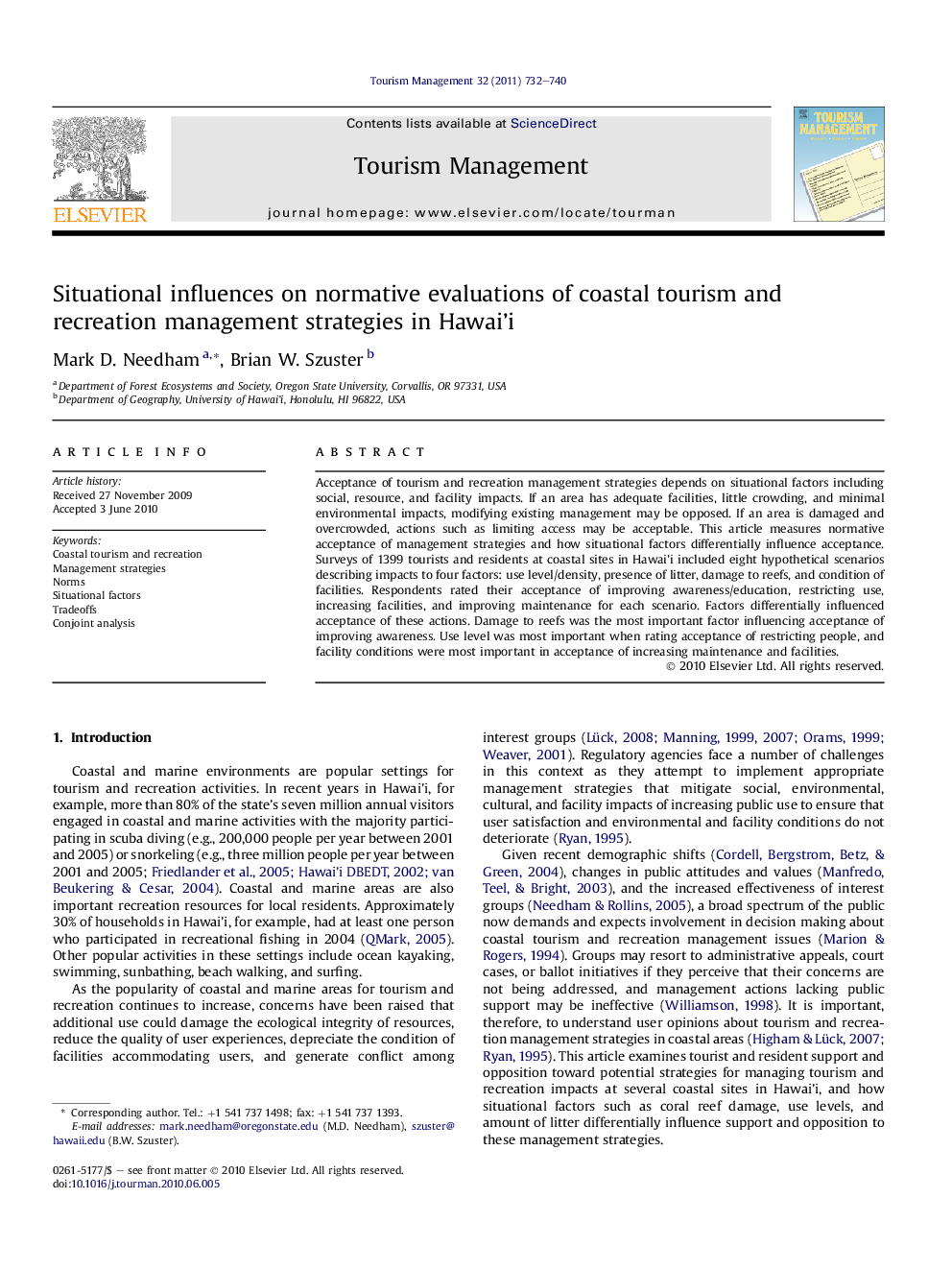| Article ID | Journal | Published Year | Pages | File Type |
|---|---|---|---|---|
| 1012238 | Tourism Management | 2011 | 9 Pages |
Acceptance of tourism and recreation management strategies depends on situational factors including social, resource, and facility impacts. If an area has adequate facilities, little crowding, and minimal environmental impacts, modifying existing management may be opposed. If an area is damaged and overcrowded, actions such as limiting access may be acceptable. This article measures normative acceptance of management strategies and how situational factors differentially influence acceptance. Surveys of 1399 tourists and residents at coastal sites in Hawai’i included eight hypothetical scenarios describing impacts to four factors: use level/density, presence of litter, damage to reefs, and condition of facilities. Respondents rated their acceptance of improving awareness/education, restricting use, increasing facilities, and improving maintenance for each scenario. Factors differentially influenced acceptance of these actions. Damage to reefs was the most important factor influencing acceptance of improving awareness. Use level was most important when rating acceptance of restricting people, and facility conditions were most important in acceptance of increasing maintenance and facilities.
